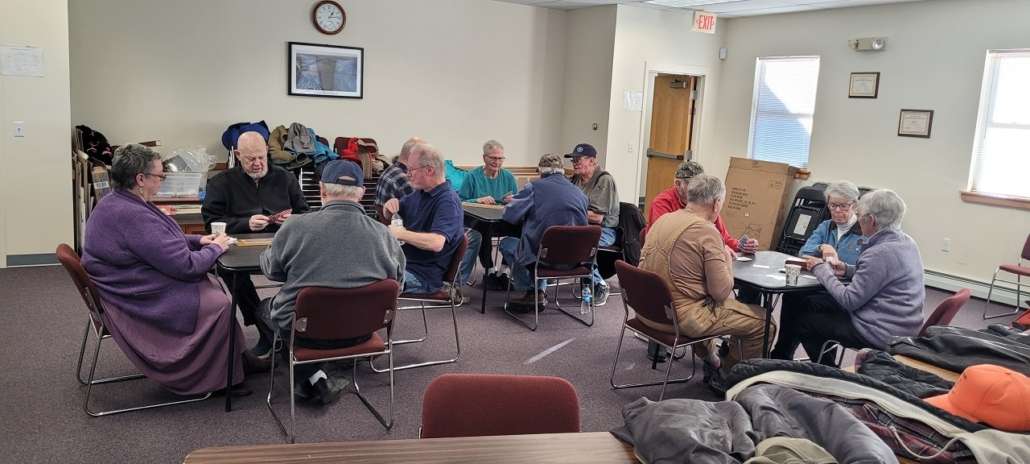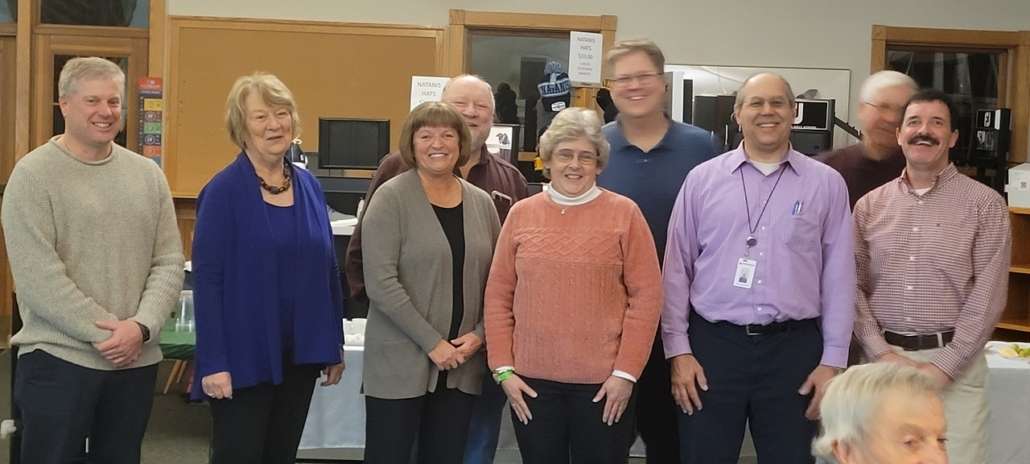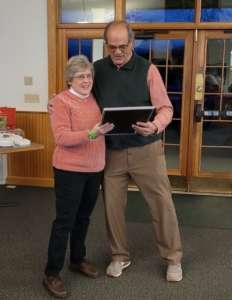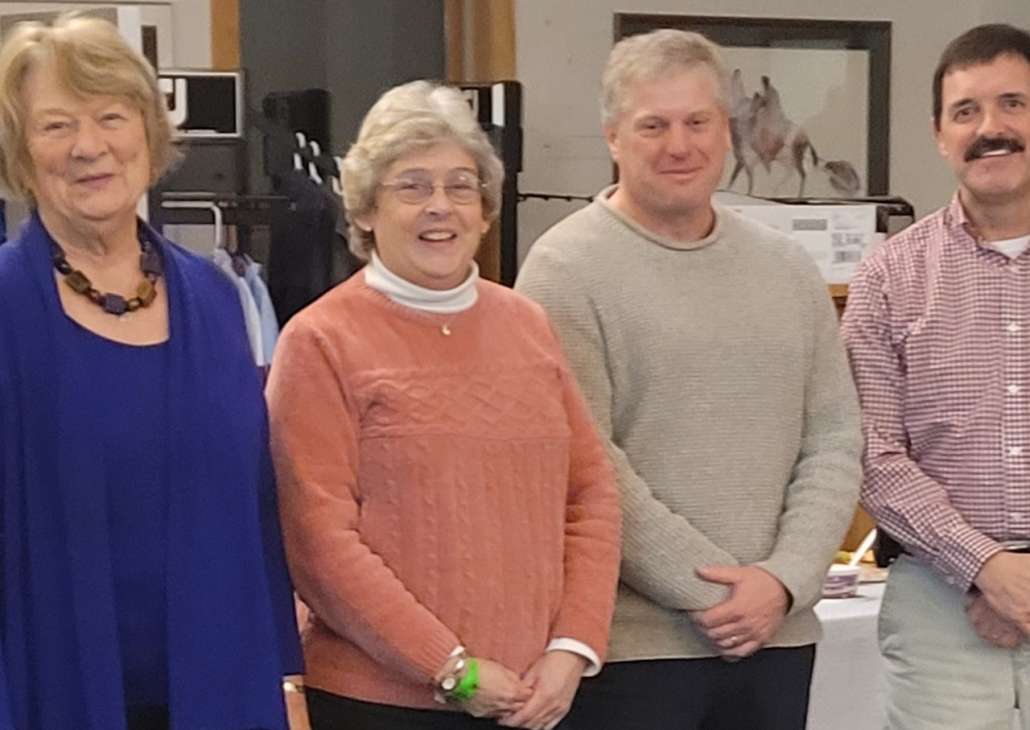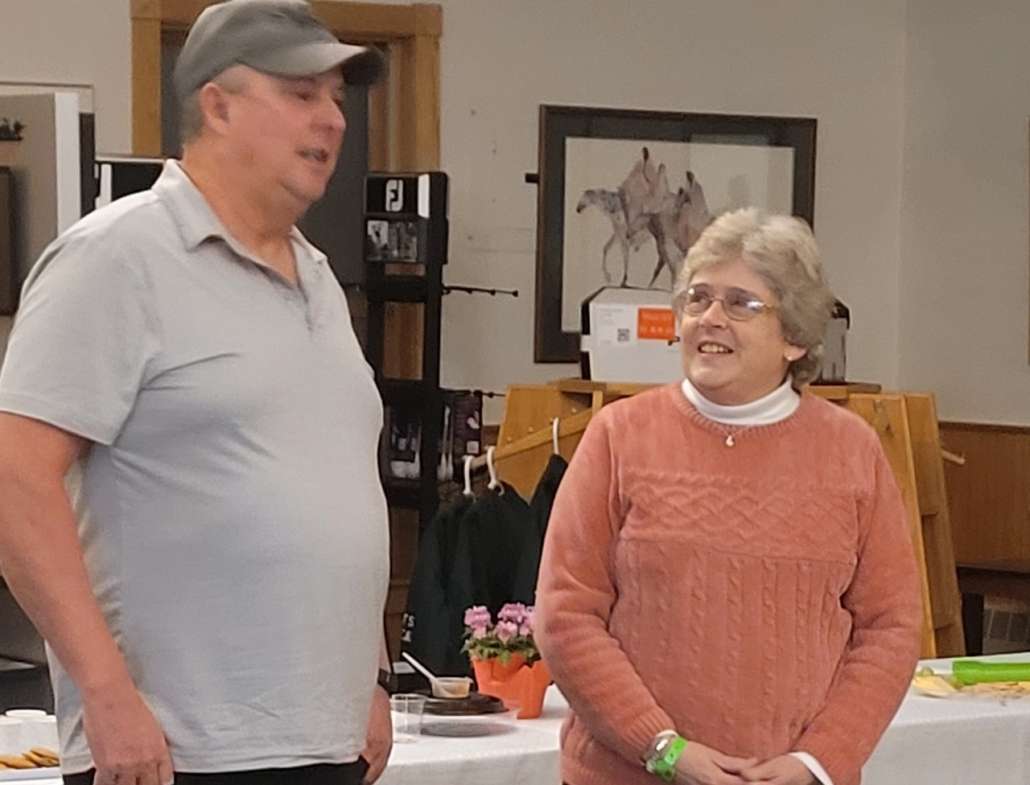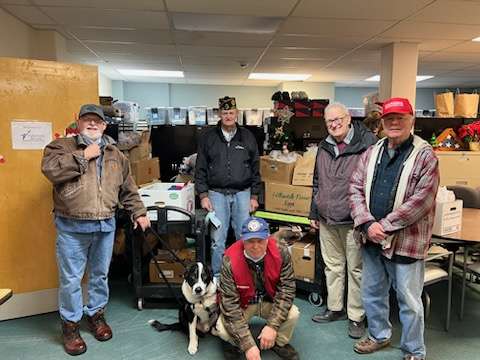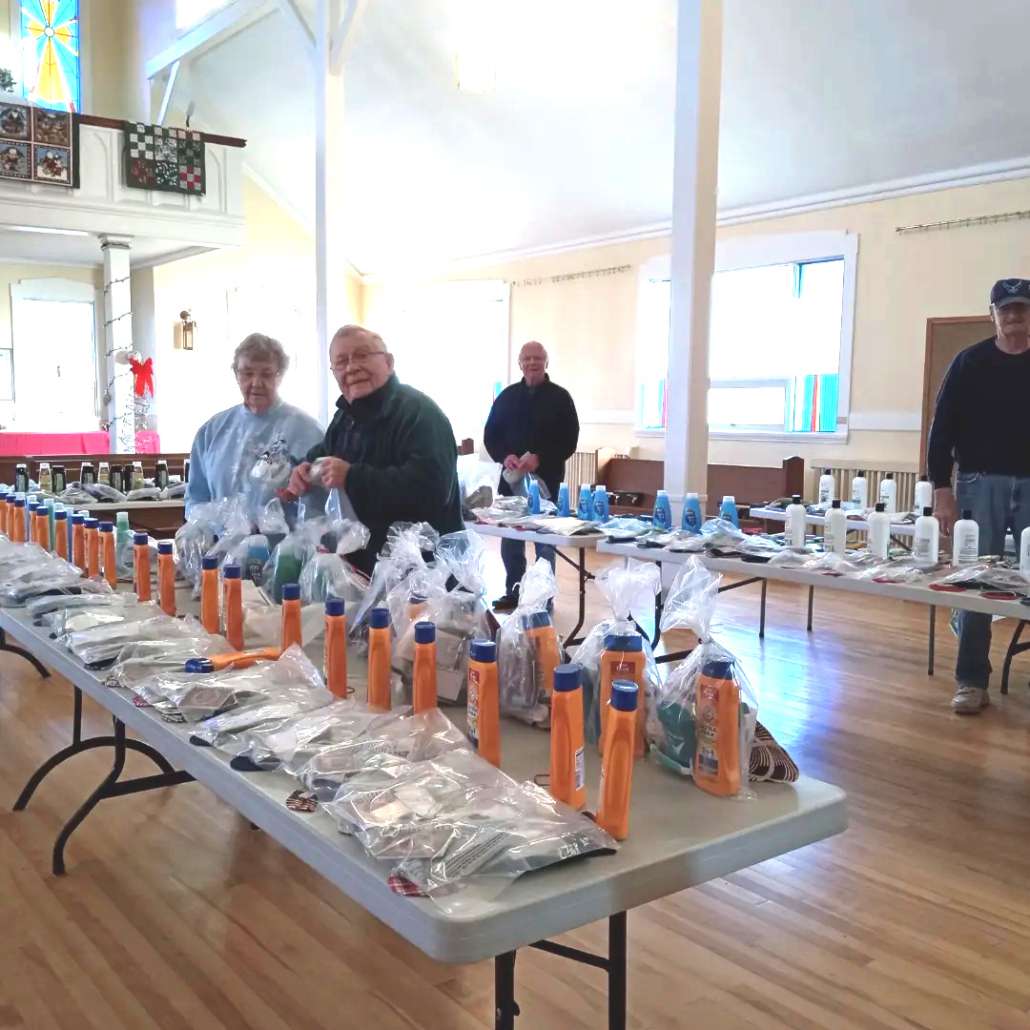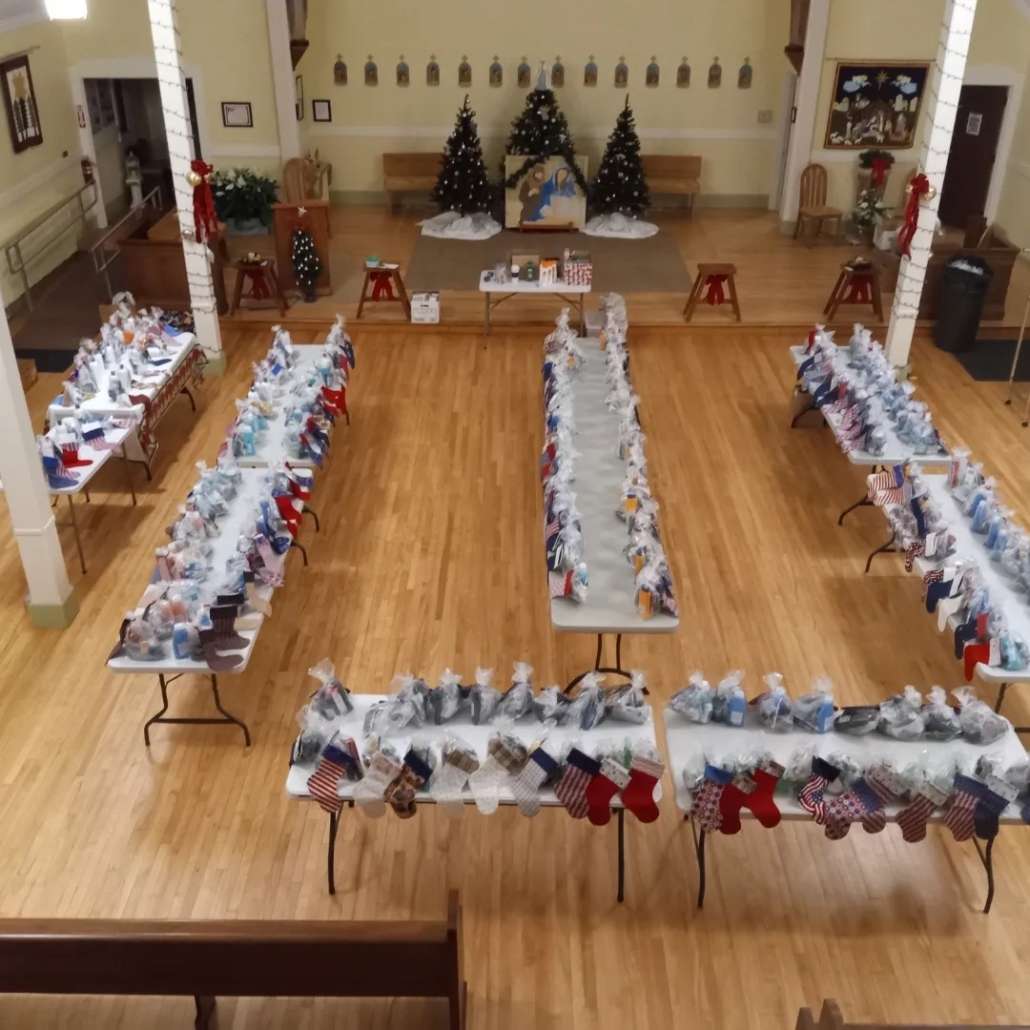Vassalboro select board listens to ARPA spending suggestions
 by Mary Grow
by Mary Grow
Vassalboro select board members preceded their Jan. 19 meeting with a 45-minute public hearing to collect suggestions for spending federal ARPA (American Rescue Plan Act) funds in the 2023-24 fiscal year.
During the meeting, they rediscussed some recommendations from their Dec. 8, 2022, meeting, added a few more items and after another 70 minutes agreed to return to the topic at their Feb. 2 meeting, to decide on priorities.
The list of items approved Dec. 8 with which they began discussion included:
- At the town office, add a button opener to make the front door more handicapped accessible (Town Manager Aaron Miller said he expects cost estimates soon) and an outside glass-covered memo board; improve outside lighting; install heat pumps; and get equipment to live-stream and record public meetings.
- At the town recreation fields in East Vassalboro, add security cameras and a water spigot (for watering the playing fields, not for drinking, Community Program Director Karen Hatch explained) and replace a leaky holding tank.
- At the Historical Society headquarters, the former East Vassalboro school building, install a 200-amp electrical service and new basement lighting.
- For the volunteer fire department, buy almost another $3,000 worth of new Scott SCBAs (self-contained breathing apparatus, or air packs).
- For the volunteer First Responder service, buy a $21,000 cardiac monitor.
- For the police department, upgrade the computer in the cruiser, at an estimated cost of $5,000.
- For the Vassalboro Sanitary District, contribute $11,000 toward guardrails.
- And allocate another $11,000 for Vassalboro to host a window dressers program, which provides window insulation. Resident Holly Weidner explained that the bulk of the funds would pay an organizer, as past events have shown that there is too much work involved for town staff or volunteers to be asked to do.
During the Jan. 19 discussion, board members added $15,000 to the recreation program for field improvements and $3,400 for attic insulation in the Historical Society building. Board member Chris French calculated they had agreed on spending about $140,000.
Resident Michael Poulin suggested select board members consider TIF funding improvements at the transfer station, among other items. Board members and transfer station manager George Hamar discussed possibilities, with Hamar advocating for a redesigned traffic flow that would make using the facility safer.
Hamar did not yet have a price estimate for a cover for the new compactor, a topic discussed at several previous meetings. He suggested the redesigned traffic pattern should come first.
In reply to audience member Dave McCarthy, Hamar said there are three or four minor traffic accidents a year and “a lot of near misses.” A couple drivers have backed into him, he said.
Board member Frederick “Rick” Denico, Jr., suggested the transfer station should be relocated from the Lombard Dam Road to a sturdier road with three-phase power available.
Harking back to an expensive redesign plan prepared by the Waterville engineering firm of A. E. Hodsdon, former select board member Lauchlin Titus assured the group, “There’s no hurry; we had the same conversation five years ago.”
After almost half an hour’s discussion, the issue was tabled.
Select board members spent three-quarters of an hour reviewing the town personnel policy. Redmond and Miller will incorporate the revisions they approved into a third draft, to be discussed at a future meeting.
The next regular Vassalboro select board meeting is scheduled for 6:30 p.m. Thursday, Feb. 2. Their annual preliminary budget discussion is set for 12:30 p.m. Tuesday, Feb. 7




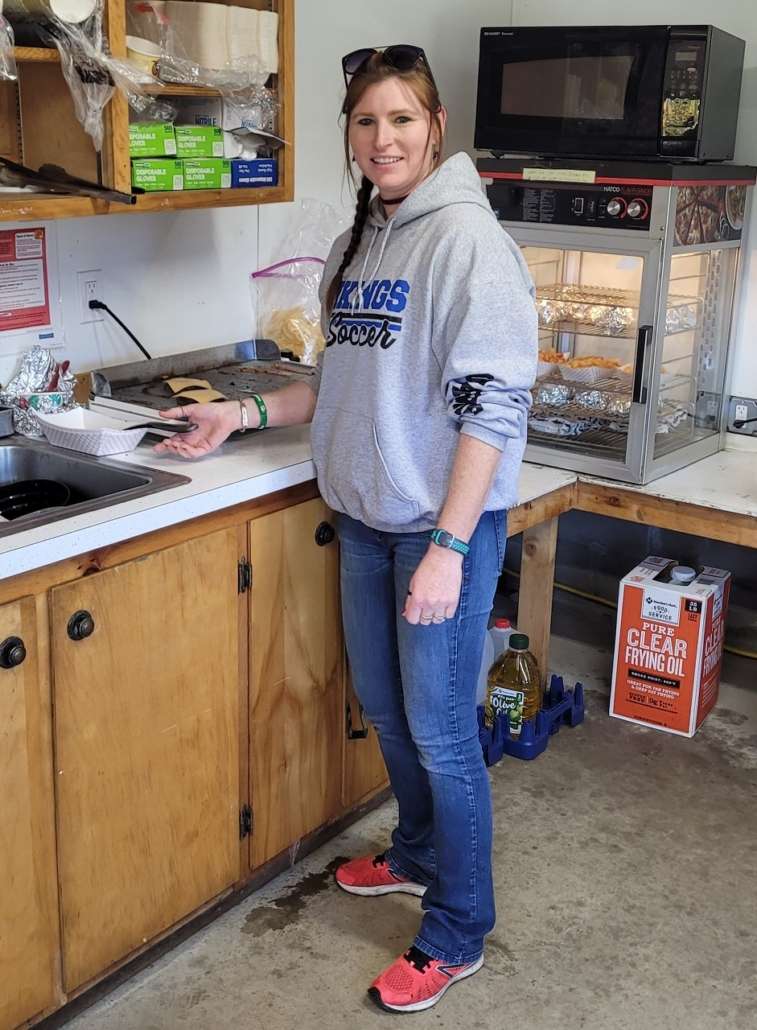


 COMMUNITY COMMENTARY
COMMUNITY COMMENTARY